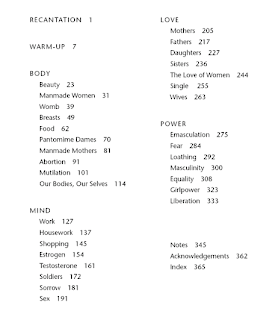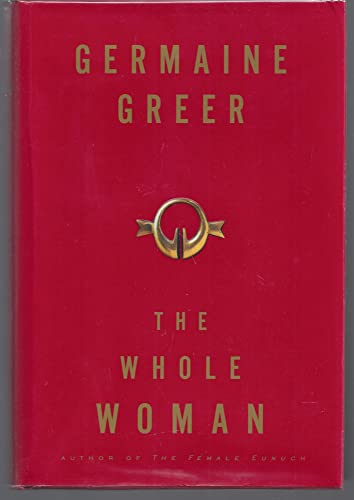
A few superficial admissions here and there cannot disguise the profound lack of self-insight that is one of the book’s presiding deficiencies. Sex and Destiny contains so many startling shifts in thought that one might expect they would be accompanied by deep soul-searching and lengthy explanations. Declaring that overpopulation is a myth concocted by elderly right-wing millionaires, she argues that we are imposing our own hatred of children, together with our fevered consumerism, on countries where children are loved and enjoyed-all to insure that the darker races not inherit the earth.

Miss Greer excoriates Western efforts at birth control in developing countries. Moreover-and this is the second theme of the book-we are, true to our imperialist selves, enforcing our own corrosive arrangements all over the world. In addition, because of our insistence on genital sex without conception, we have accepted the dangerous pharmacological hardware of modern birth control, and lost the ability to remain chaste or to employ the healthy varieties of anal sex and coitus interruptus. Our skimpy nuclear families are centered on the consumer-oriented “copulating couple,” who indulge in “recreational sex” and barely manage to turn out a child or two as they contend for orgasmic bliss. In Miss Greer’s current view, the West is now oversexed, subfertile, and hopelessly materialistic. Where The Female Eunuch suggested that we find ways to deepen our sexual delight (because “the sexual personality is basically anti-authoritarian”), the present book decries the cooptation of sex by consumer society and tersely recommends chastity as a form of birth control. Where The Female Eunuch preached spontaneous self-realization against the oppressive forces of civilization, the present book speaks glowingly of the self-sacrificing collectivity of extended families in underdeveloped countries. Where The Female Eunuch deplored every inhibition placed on women by the patriarchal West, the present book manages a good word for such Third World practices as the veil, menstrual segregation, and even polygamy. To be sure, Miss Greer has not lost her power to shock. Times of course have changed, but even changing times cannot fully account for what appear to be the violent reversals of her newest book.

Germaine Greer, with her disheveled Anna Magnani-style sexiness and sharp dry Cambridge wit, became a talk-show and counterculture celebrity, shocking her then perhaps eager-to-be-shocked audiences with outrageous ideas, such as the obsolescence of marriage and the dispensability of underwear.

The Female Eunuch (1970) was a racy, radical, best-selling manifesto that posited sexual freedom as the key to women’s liberation. Sex and Destiny: The Politics of Human Fertility.Īnyone reading this book might find it hard to believe that its author also wrote one of contemporary feminism’s pioneering texts.


 0 kommentar(er)
0 kommentar(er)
